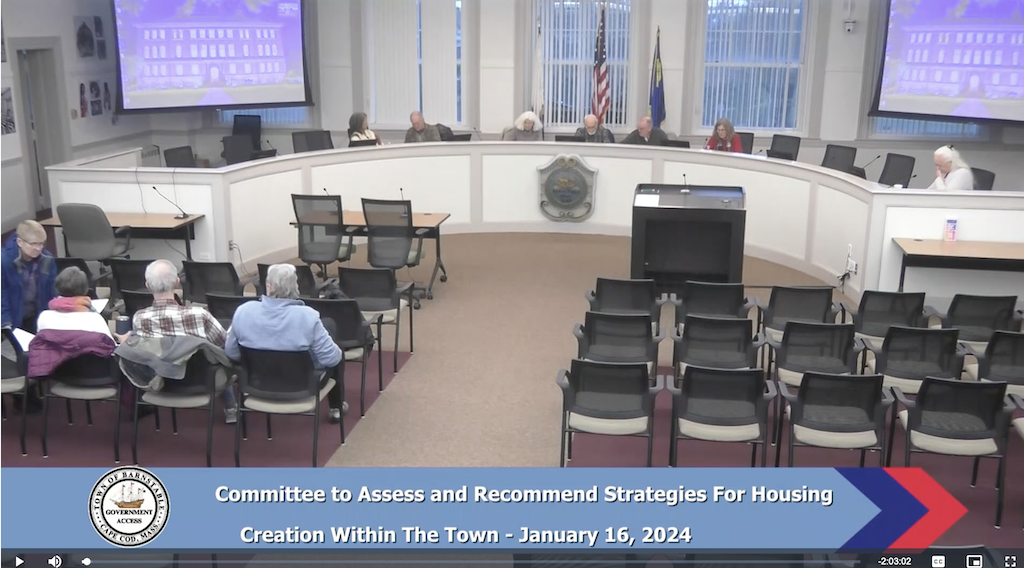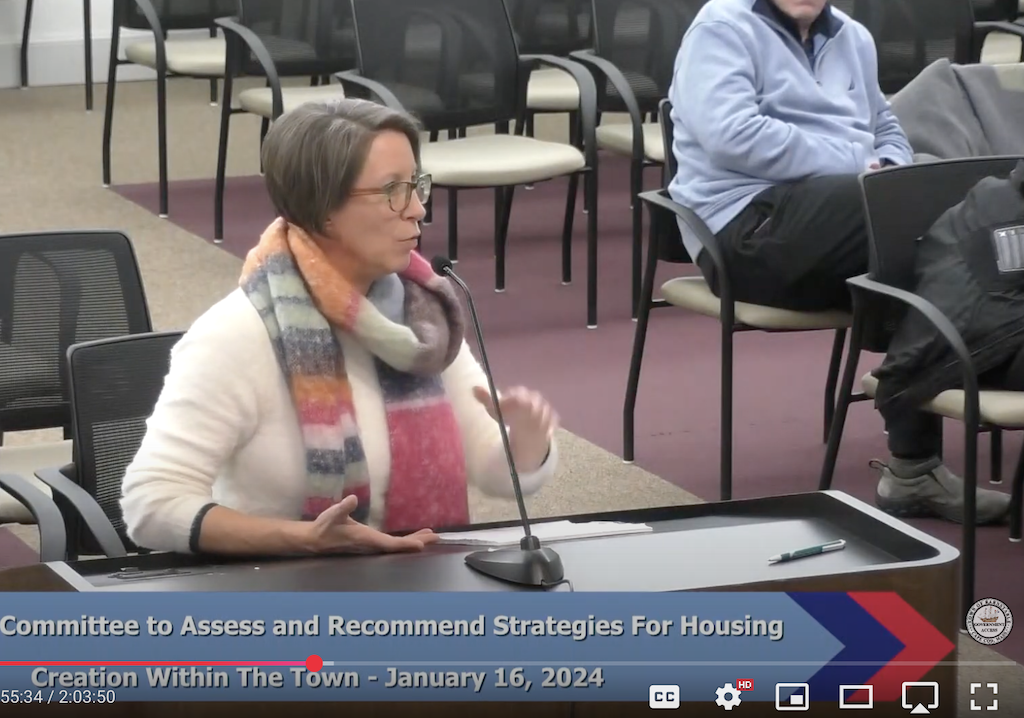Ad Hoc on Housing Strategies | Jan 16, 2025
The meeting focused on strategies to address the affordable housing crisis. The discussion expanded to include related issues like the relocation of a homeless shelter and the implications of sewer financing on future development.


Watch the meeting. AI generated summary of meeting video below. Corrections are welcome; see contact page.
The meeting focuses on strategies to address the affordable housing crisis in Barnstable, Massachusetts. The discussion expands to include related issues like the relocation of a homeless shelter and the implications of sewer financing on future development.
Key Points
- Affordable Housing Strategies: The committee aims to develop strategies for creating affordable housing for year-round residents and seasonal workers by March 31st. This includes exploring various avenues such as utilizing existing buildings (like the Armory), regulating short-term rentals, implementing a real estate transfer tax, and increasing funding for affordable housing initiatives.
- Homeless Shelter Relocation: A significant portion of the discussion centers on the proposed relocation of a homeless shelter to a new location (460 West Main Street), sparking debate about community impact and the committee's role in addressing this issue.
- Sewer Financing and Growth: Concerns are raised about the town's sewer financing choices and their potential impact on housing development, particularly in areas like Marston Mills. The lack of growth restrictions could lead to increased development pressure and potentially exacerbate the housing crisis.
- Zoning Regulations: The committee grapples with the challenges posed by existing zoning regulations, which often hinder the creation of affordable housing. Members debate the merits of increasing zoning flexibility to allow for more diverse housing options, such as duplexes, while acknowledging potential community backlash.
- Resource Allocation: The committee discusses the need for increased funding for affordable housing, potentially through a real estate transfer tax or reallocation of Community Preservation Committee (CPC) funds. The role and responsibilities of a potential housing coordinator are also explored.
- Data and Inventory: The lack of a comprehensive inventory of existing subsidized housing and the need for better data collection and monitoring are highlighted.
Highlights
- Passionate Debate: The meeting features a lively and often emotional discussion among committee members and public commenters, reflecting the urgency and complexity of the housing crisis.
- Community Involvement: The importance of community engagement and addressing underlying biases against affordable housing are emphasized.
- Balancing Competing Interests: The committee struggles to balance the need for affordable housing with concerns about preserving the character of existing neighborhoods and managing the impact on existing infrastructure.
- Call for Action: The meeting concludes with a call for the committee to develop concrete recommendations, including potential zoning changes and increased funding, to present to the Town Council.
